7 dishwasher tips that can save you money
Here’s can you can get more bang for your buck from your dishwasher
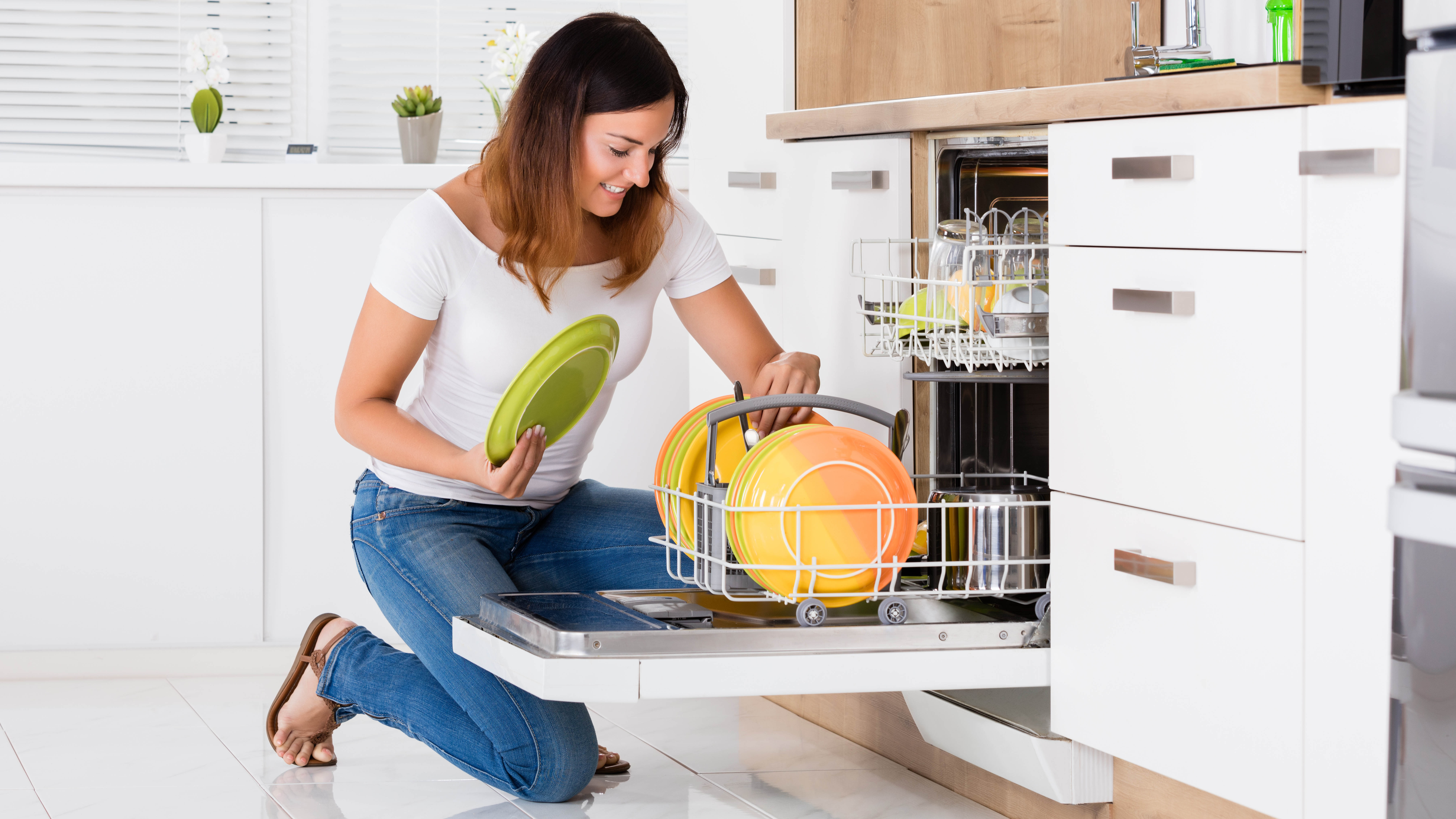
Here at Tom’s Guide our expert editors are committed to bringing you the best news, reviews and guides to help you stay informed and ahead of the curve!
You are now subscribed
Your newsletter sign-up was successful
Want to add more newsletters?

Daily (Mon-Sun)
Tom's Guide Daily
Sign up to get the latest updates on all of your favorite content! From cutting-edge tech news and the hottest streaming buzz to unbeatable deals on the best products and in-depth reviews, we’ve got you covered.

Weekly on Thursday
Tom's AI Guide
Be AI savvy with your weekly newsletter summing up all the biggest AI news you need to know. Plus, analysis from our AI editor and tips on how to use the latest AI tools!

Weekly on Friday
Tom's iGuide
Unlock the vast world of Apple news straight to your inbox. With coverage on everything from exciting product launches to essential software updates, this is your go-to source for the latest updates on all the best Apple content.

Weekly on Monday
Tom's Streaming Guide
Our weekly newsletter is expertly crafted to immerse you in the world of streaming. Stay updated on the latest releases and our top recommendations across your favorite streaming platforms.
Join the club
Get full access to premium articles, exclusive features and a growing list of member rewards.
We all depend on the best dishwashers to keep up with the dirty dishes — running it day and night for a steady supply of clean crockery and utensils. And while all dishwashers use water and electricity to run, did you know that there are certain changes you can make to help lower your bills?
Nothing drastic is required to do this either. By making a small change, here and there, less money will be going down the drain (literally) and you could save yourself some time in the process too. Here are 7 dishwasher tips and tricks which will help save you money in the long-run.
1. Load your dishwasher to full capacity
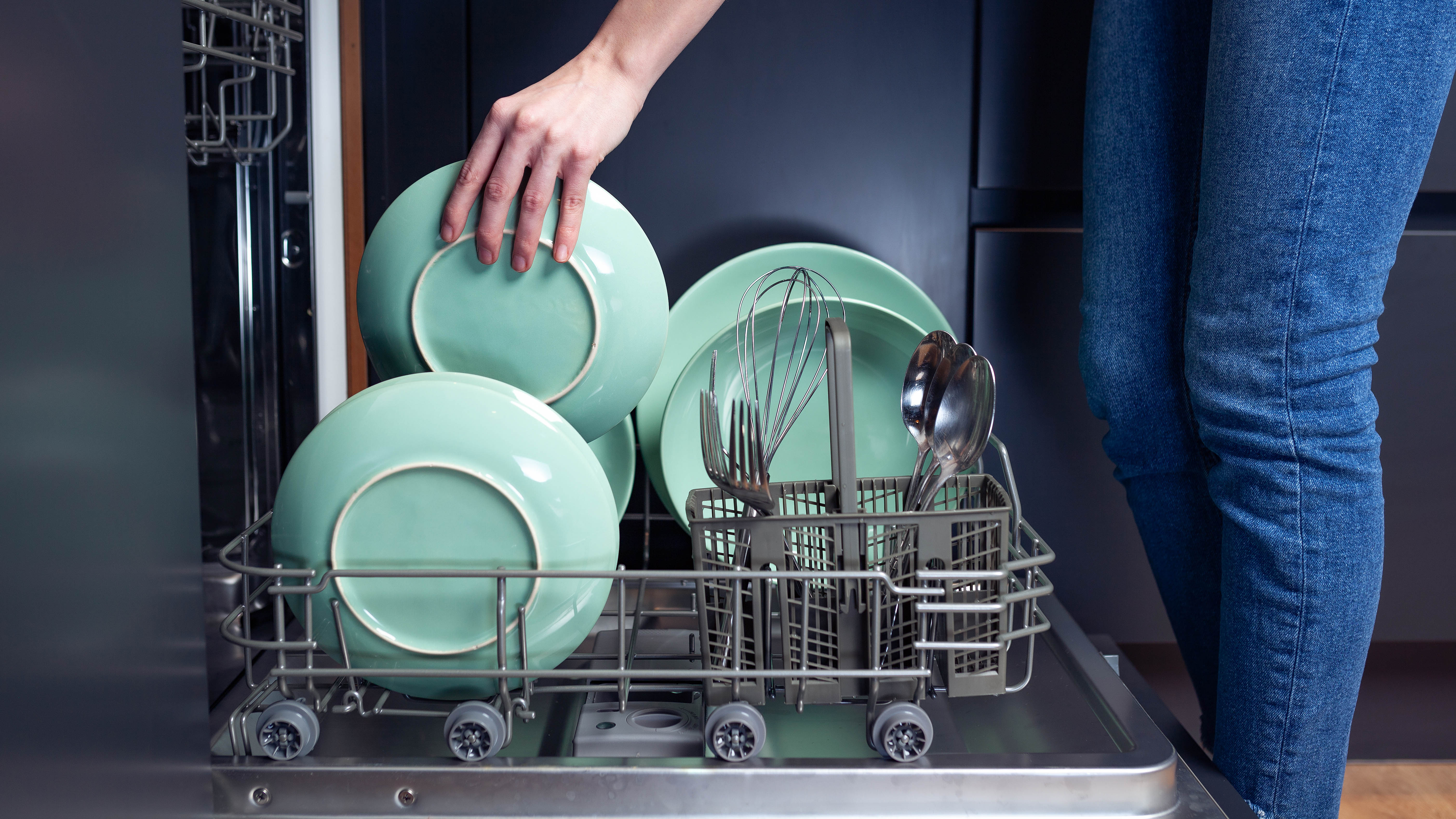
Yes, it sounds like common sense, but many of us are guilty of running our dishwashers prematurely. This will either be because it smells quite bad, or because we need what’s in there sooner than we thought. But, you must resist the urge to run your dishwasher before it’s at full capacity — the empty space will only waste water as well as electricity, and this habit will add up to additional, unnecessary cycles over time. So, if you have a dishwasher with a third rack, be sure to make sure you load it along with the other racks.
If your dishwasher smells bad, investigate where it’s coming from. If it’s from residual food, scraping your plates more thoroughly could reduce this. You could also just shut the dishwasher’s door to better contain the smell before you run it. If the smell is something you really struggle with, you could also invest in a dishwasher which is designed to reduce this. The GE Profile Ultrafresh System cleans itself between cycles for instance — that’s right, someone finally made a dishwasher that doesn’t get smelly.
2. Load your dishwasher correctly

As well as filling your dishwasher to full capacity, you must load it correctly. Otherwise the entire cycle could be wasted, and you could end up washing items over and over. To load a dishwasher correctly, items shouldn’t be touching each other — this is so the water can flow through and clean effectively. Each item should also be in its designated position; you can refer to your manual if you need help on this.
Don’t forget that anything which could collect water, such as a glass or bowl, should be placed upside down. Lastly, it’s crucial that no items block the spray arm. If this can’t rotate, then the whole cycle will fail. If you’ve got particularly tall items in the lower rack which touch the spray arm, you can raise the upper rack to accommodate them. For a full breakdown on how to load a dishwasher the right way, check out our guide.
3. Don’t bother rinsing plates

Here, we refer to pre-rinsing items in the sink prior to loading them in the dishwasher. Your dishwasher is designed to clean dirty crockery, residual sauce and all, so the water and time spent pre-rinsing is entirely wasted, with the exception of perhaps reducing the smell — but, is it really worth the cost? After all, if you use a cup of water to pre-rinse each plate in a dishwasher with 14 place settings, that’s 42 cups of water wasted on just one cycle. Your dishes will still emerge just as clean either way, so you should break this habit.
Get instant access to breaking news, the hottest reviews, great deals and helpful tips.
Of course, that's not to say you should chuck your leftovers in the dishwasher. Residual food should still be scraped away before loading the item — otherwise, you’re just going to block your filter, ruin the cycle, and then you’ll have to remove the food by hand later, which is pretty gross.
4. Don’t hand wash
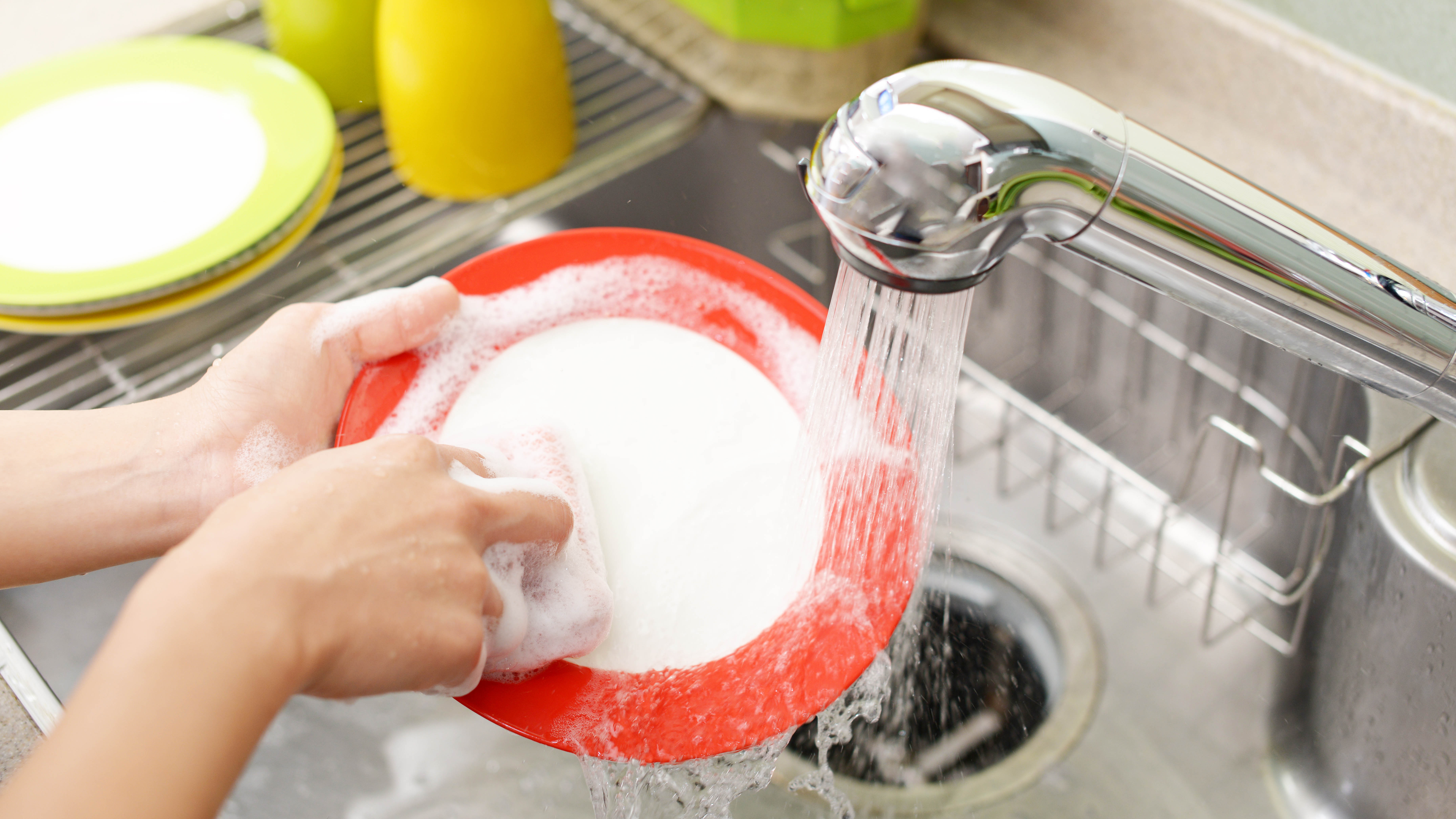
It’s tempting to wash rogue items or a small stack of dirty dishes by hand at times. However, you should always rely on the dishwasher where you can. Using a dishwasher is actually the better option of the two. It uses less water on average, requires less hands-on time, plus it’s more hygienic as a dishwasher cycle can reach temperatures our hands can’t endure. For more details check out dishwasher vs washing by hand — which is cheaper?
With this in mind, be sure to pick and choose which items you decide to wash by hand. Anything wooden or overly fragile should definitely be hand-washed, as should exposed cast iron. Remember, though, some things should never go in the dishwasher.
5. Use the Eco setting
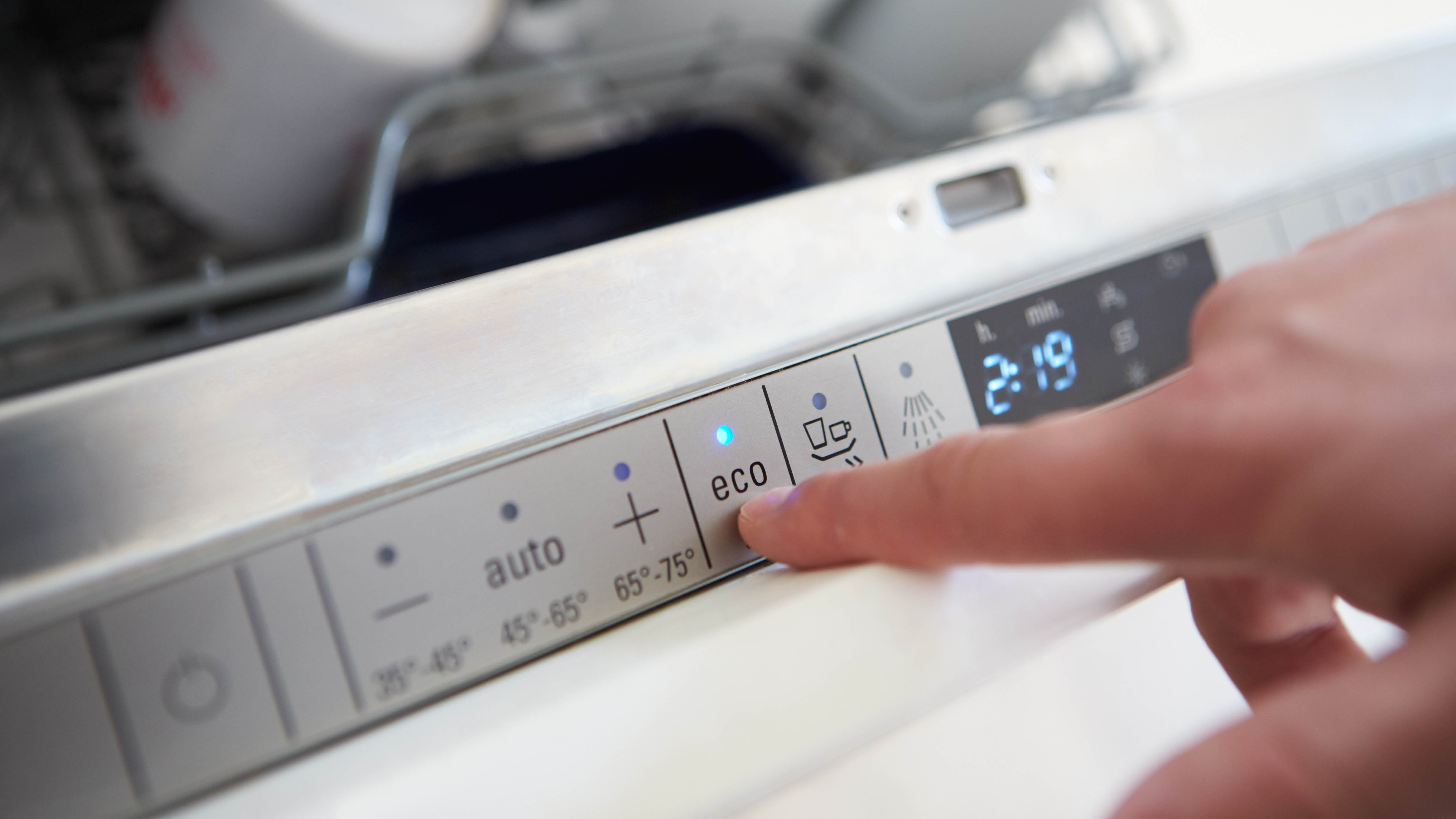
Many dishwashers now offer an ‘Eco’ setting, which will use less water and electricity in exchange for a longer run time. This does mean you will be waiting around a little longer for clean dishes (some programs can take up to four hours from start to finish), but it will equate to a substantial saving on your bills over time. Bear in mind that an Eco setting will not provide as much cleaning power as a Heavy or Intense cycle, so reserve your heavily stained pots for these.
Some of the best washing machines also offer Eco settings, which is worth keeping an eye out for. This provides a similar performance — reduced water and electricity consumption for a longer program. This is another way you can easily save on your bills.
6. Use the timer

Everyone knows that the timer on appliances can come in use for delaying cycles until it’s convenient. For instance, your dishwasher could be ready to empty as soon as you get home from work. But, did you know that you could use this feature to save money if you’re on a time-of-use energy plan?
These electricity plans will charge more during peak hours, when energy is high in demand, and conversely less during off-peak hours. That means all you need to do is set your dishwasher to start during the reduced tariff, and you could make a saving. This is typically overnight or first thing in the morning depending on your location, but if you want more details on the exact timings, check out this is the cheapest time to do your laundry and save money.
7. Keep your dishwasher well-maintained
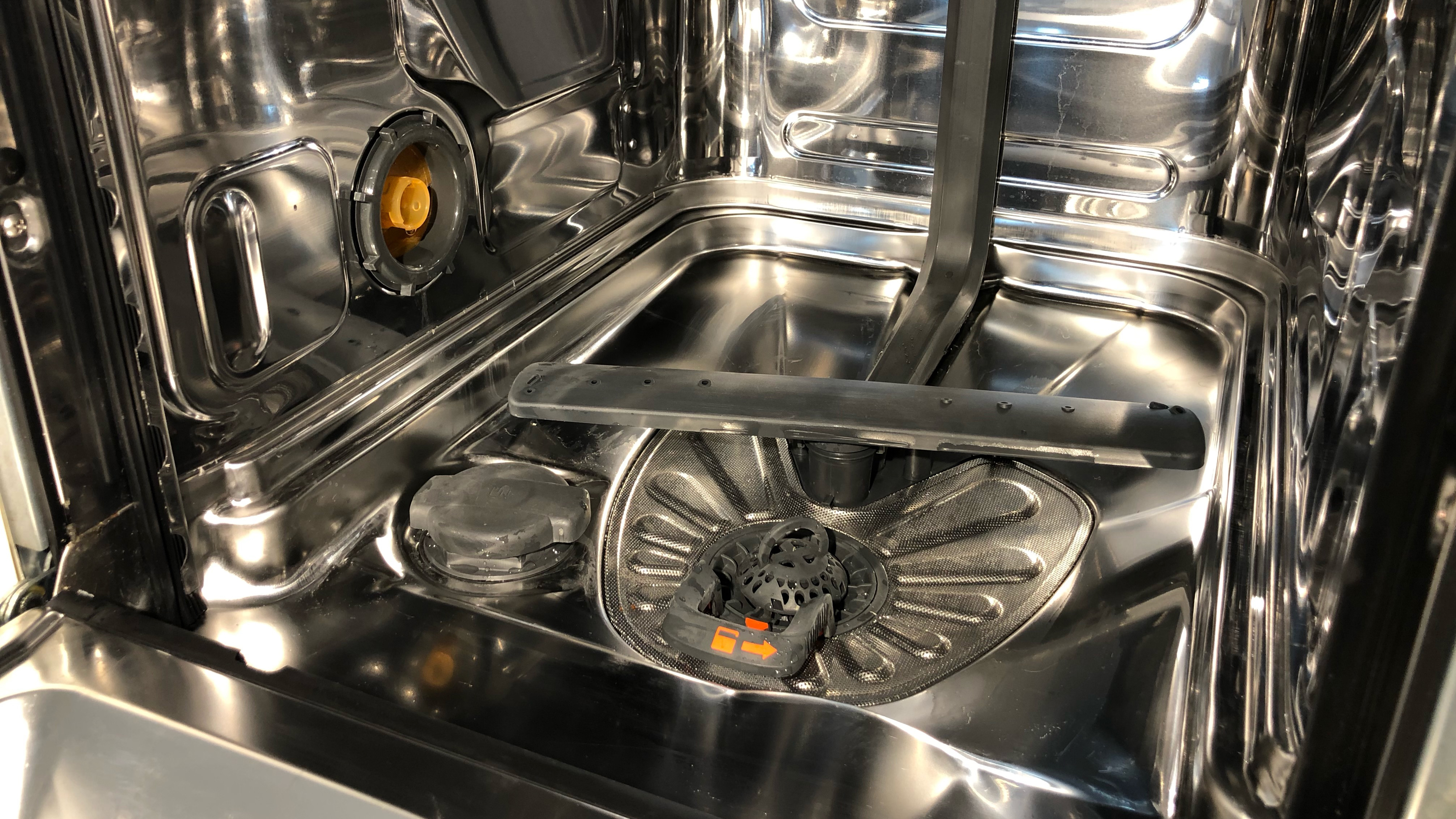
If you want to save money in the long run, you’ll want to help your dishwasher last as long as possible, so it requires fewer repairs and won’t need replacing as often. There are several ways you can do this. First, you need to learn how often to clean your dishwasher and how to clean a dishwasher, and get into the habit of checking the filter after each cycle. It's also worth knowing how to deep clean a dishwasher, which you should do once a month. You’ll also want to make sure you don’t load it with something you should never put in a dishwasher. As well as damaging the items, this can potentially damage the dishwasher itself.
You should also descale your dishwasher regularly to extend its lifespan. This will keep any limescale at bay — white vinegar works brilliantly for this. Keep the salt reservoir topped up at all times too; this can deter limescale from building up in the first place.
For more washing tips, tricks, and how-tos, check out our guides on best clothes dryers, when you should and shouldn't use the quick wash setting and what do laundry symbols mean?

Katie Mortram used to be a Homes Editor for Tom's Guide, where she oversaw everything from kitchen appliances to gardening tools, as well as smart home tech. Specializing in providing expert advice for cleaning and home manintenance, she now works as Household Advice Editor for Good Housekeeping.
 Club Benefits
Club Benefits










